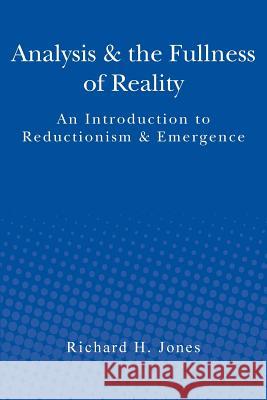Analysis & the Fullness of Reality: An Introduction to Reductionism & Emergence » książka
Analysis & the Fullness of Reality: An Introduction to Reductionism & Emergence
ISBN-13: 9781481988988 / Angielski / Miękka / 2013 / 250 str.
Is the world nothing but matter pushing matter in a void? Are humans nothing but soulless machines for the survival of genes? Is the mind nothing but the brain? Is all science reducible to physics? Must scientists restrict the substance and structure of reality to physical forces? Does society consist merely of individuals or are holistic forces also at work? Is God really no more than a projection of nature, society, or our psyche? Or in each case do new realities emerge that cannot be reduced? Virtually every scholarly and popular book and magazine article on the mind, science, or religion touches on these issues of reductionism. But for all the interest in the topic, no in-depth introduction of the subject exists. The objective of this philosophical work is to fill that void. This book attempts to provide one common framework for studying how the issue of reduction versus emergence arises in each of the areas in which it comes up - the natural sciences, philosophy of mind, the social sciences, and religion. It tries to resolve some of the disputes by a new analysis: differentiating five types of reductionism and antireductionism - ontological, structural, theoretical, conceptual, and methodological. To help clarify the issues, a brief history of how reductionism and emergentism have developed in Western philosophy is also presented. By distinguishing different types of reductionism and by examining the issues in all the areas of philosophical interest collectively rather than limiting the discussion to just one area, the general issues surrounding reduction versus emergence become clearer. This approach brings together many of the most interesting questions today in philosophy, science, and religious studies. The attempt throughout the work is to present the reductionists' and emergentists' strongest case on each issue and to identify problems with both sides. But it is argued that in the end the reductionists in each area currently have the weaker position. The work concludes with a discussion of the centrality of nonreducible features in reality and asks whether science under a reductionist vision can ever explain the emergence of higher levels of phenomena.
Zawartość książki może nie spełniać oczekiwań – reklamacje nie obejmują treści, która mogła nie być redakcyjnie ani merytorycznie opracowana.











